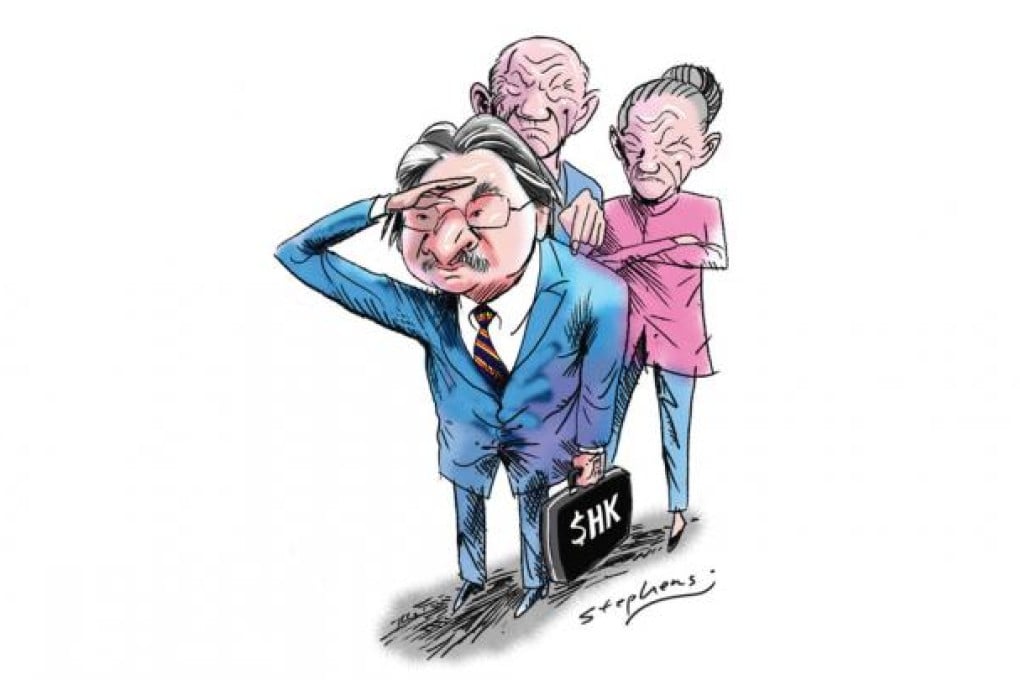Budget meets its first duty, but where's the vision?
Joseph Wong says while the financial secretary has largely followed the policy direction set by his boss, his budget offers little long-term vision on poverty, tax reform and an ageing society

There are two ways to examine the 2013-14 budget presented by Financial Secretary John Tsang Chun-wah. The first is to treat it as a financial statement that allocates sufficient resources for the implementation of Chief Executive Leung Chun-ying's policy initiatives, contained in his policy address delivered in January. A government budget should also support the chief executive's governance philo- sophy and, where necessary, propose additional measures to propel economic growth and provide relief to those who deserve it.
In carrying out the chief executive's vision, Tsang has done his duty, but only just. Enough resources will be allocated to Leung's projects, such as the new Old Age Living Allowance, amounting to HK$8.3 billion and representing a substantial share of the increase in next year's recurrent expenditure. But Tsang did not seem to share Leung's enthusiasm in certain areas. For example, the Financial Services Development Council - set up by the chief executive as a government advisory body - got just one line in the budget speech.
While singing the chief executive's tune of fostering economic integration with the mainland, the speech was a reminder of the need to preserve Hong Kong's characteristics as an international city, and the core values of individual freedom, the rule of law and a clean government, which align us with the international system. I can see in Tsang a better salesman of Hong Kong than his boss at international forums.
The budget offered one-off relief measures and tax reductions, similar to last year's. This should help remove the negative reaction caused by Leung's first policy address, which was widely criticised as uncaring to the underprivileged and the middle class. However, one should question whether the continuation of annual one-off relief measures is an excuse to avoid tacking the real problems of poverty.
This suspicion is reinforced by the government injecting HK$15 billion into the Community Care Fund, which was set up by former chief executive Donald Tsang Yam-kuen as a one-off welfare project with matching contributions from the government and business sector. With this additional money, the fund could comfortably supplement the government's one-off relief measures by targeting those outside the established safety net.
But the government should start looking at the long-term role of the fund to ensure that it does not become a convenient vehicle for dishing out money, thus avoiding tackling the real causes of poverty and income disparity.
John Tsang has helped raise the credibility of the government's housing policy by providing concrete figures. For example, he announced that the supply of land in the coming year would be sufficient to build some 25,800 private residential flats. He also gave an assurance that, in the next three to four years, a total of 67,000 first-hand units could come onto the private residential market, the highest since 2007.